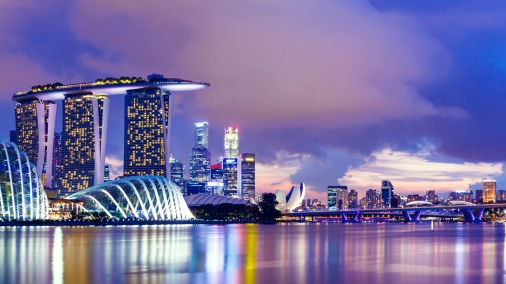
How the Russia-Ukraine conflict will affect the economy
The crisis has clouded SG’s economic outlook, according to Trade Minister Gan.
Whilst Ukraine is geographically far away, Trade Minister Gan Kim Yong said the former’s ongoing conflict with Russia will ultimately leave a “real” and “significant” impact on Singapore’s economy.
Gan said Singapore's energy cost will be the most impacted by the conflict given that the state imports most of its energy needs.
“Electricity rates for both businesses and households will also increase in tandem with escalating global energy costs. These will undoubtedly impact Singaporeans, and further raise the cost of living here,” the trade minister said.
Pump prices for petrol and diesel in Singapore are likewise expected to increase amidst the conflict since Russia is a major exporter of oil and natural gas.
“We have already seen in recent months a spike in the global prices of oil and natural gas, which Russia is a major exporter of. For example, Liquified Natural Gas, or LNG, prices have doubled from about US$17/MMBTU about half a year ago to about US$35 currently. Brent Crude benchmark also surged past US$100 per barrel a few days ago, compared to the US$71 average we saw last year,” Gan explained.
Singapore's manufacturing and construction, and semiconductor industries might also be affected by the conflict given that both Ukraine and Russia are major exporters of metals like nickel and palladium.
“Supply disruptions for these commodities will raise prices of goods that use these commodities as intermediate input,” Gan said.
“We are working with our key companies to review their business continuity plans, to minimise disruptions to their business operations,” the trade minister added.
The government is also preparing for the “follow-on impact” of the conflict on “trade and investment flows.”
“A protracted conflict will affect business confidence and weigh on global economies, and impact their recovery from the pandemic,” Gan said.
Overall, the trade minister said the conflict has clouded Singapore's economic outlook. Whilst the government have yet to estimate the actual impact of the conflict on Singapore's GDP growth and inflation, the government is sure that “inflationary pressures are likely to rise further in the near term.”
Meanwhile, the longer-term impact of the conflict on Singapore’s economy will depend on how it unfolds, and how the countries across the globe will respond to the situation.
The government has earlier said that Singapore will “act in concert with like-minded countries to impose appropriate sanctions and restrictions on Russia.”
Read more: Government to block certain Russian banks, financial transactions
On addressing the possible economic impacts of the conflict, Gan said Singapore has adopted a “multi-pronged strategy to manage supply chain risks, especially for essential goods.”
“This includes diversifying our imports, stockpiling, and producing locally where viable, and working with major importers and retailers to ramp up supply from alternative sources if necessary,” Gan said.
Whilst the government will not be able to insulate SG from the impact of higher global costs due to the conflict, Gan said measures have already been put in place to help businesses and households like the Small Business Recovery Grant and the Household Support Package.
“We will continue to monitor the situation closely and if necessary, introduce additional measures to help them cope
with the challenges,” Gan added.
Related: MFA urges Russia to 'peacefully' settle dispute with Ukraine
























 Advertise
Advertise






